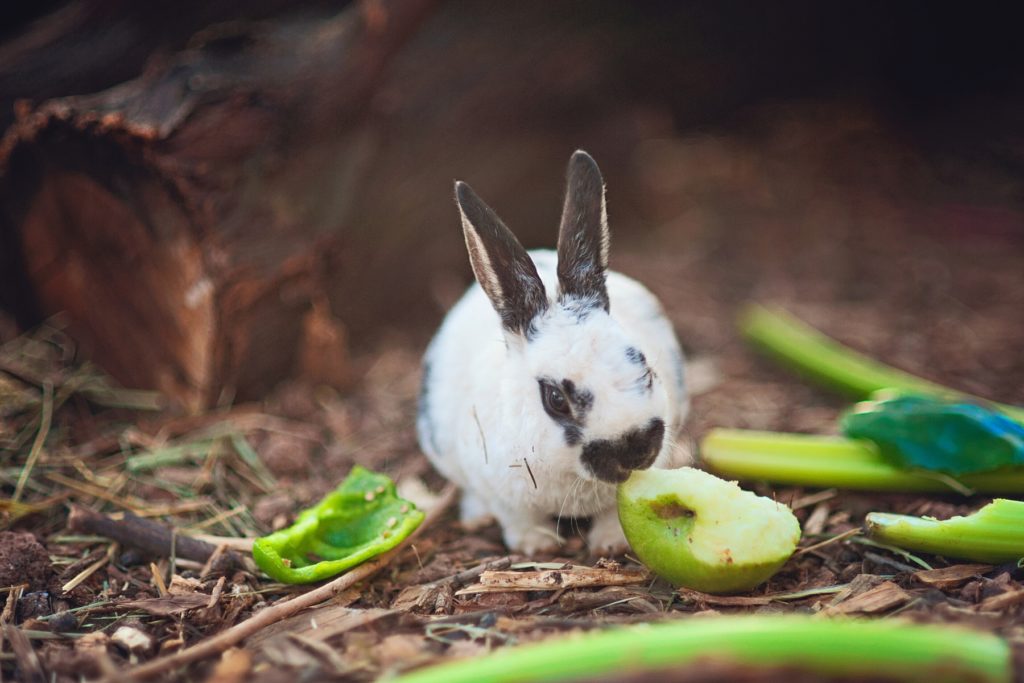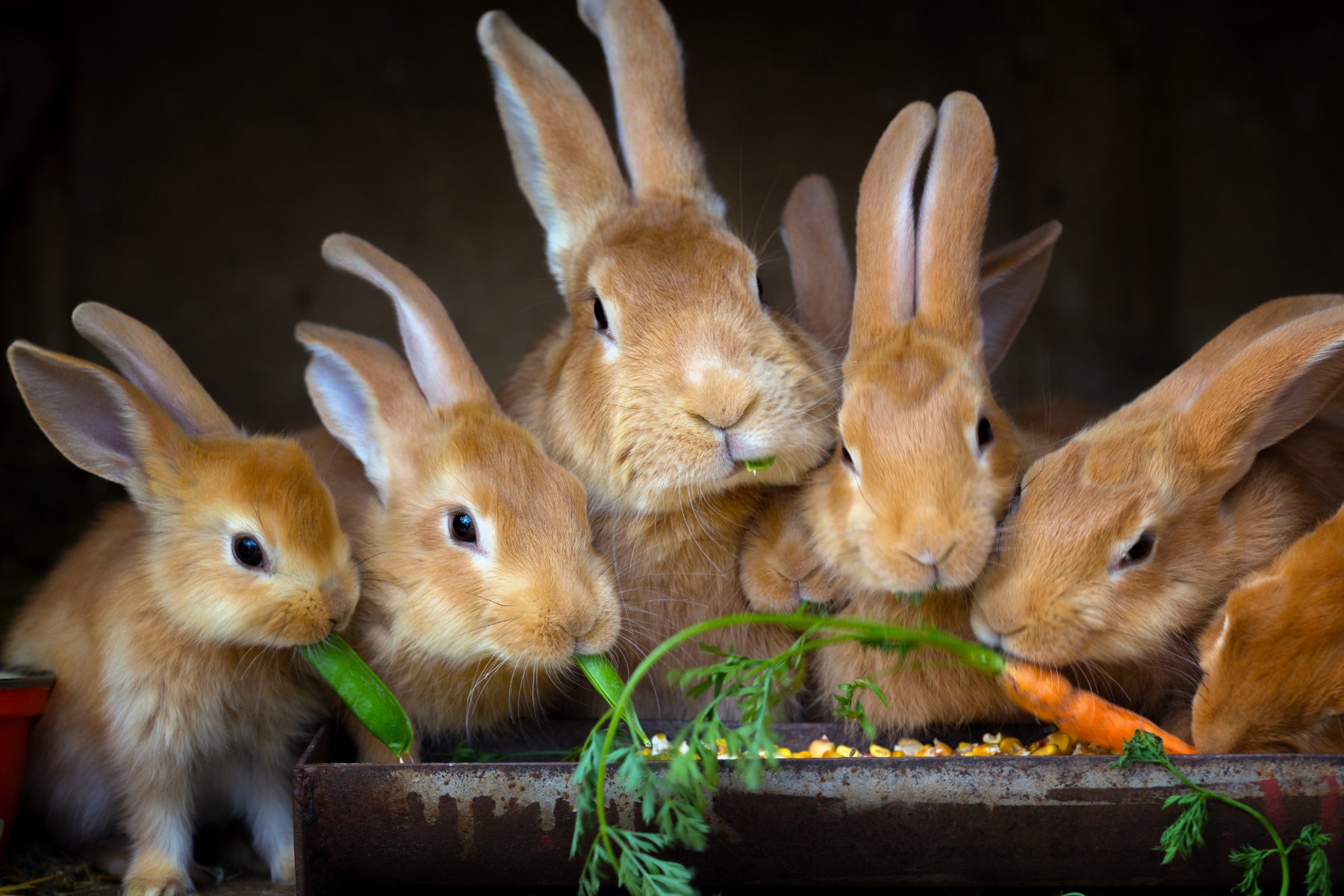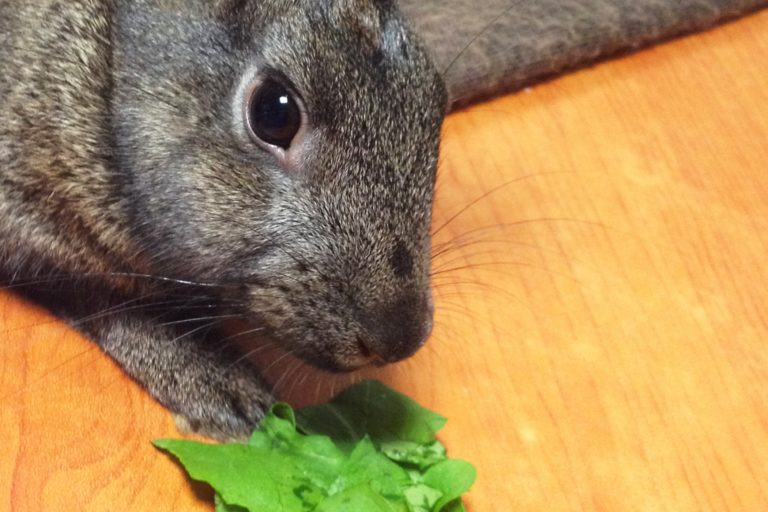Healthy Rabbit Diets – What Can’t Rabbits Eat, and Why?
Rabbits make excellent pets for kids and adults alike, just like cats, rats, and chickens. Part of learning to care for your rabbit is knowing which foods you can feed them and which you cannot! After all, you don’t want to make your poor rabbit sick.
In this article, we’ll talk about what a healthy rabbit diet looks like, what your rabbit cannot eat, and what the best safe rabbit treats are. To learn more, read on!
Why Do Rabbits Make Great Pets?
Rabbits can make great pets for several reasons. They are typically social animals that enjoy human interaction and can be very affectionate and playful. They are also relatively easy to care for, can be housed indoors or outdoors, and are generally low-maintenance, and can be litter-box trained.
In addition to this, they are generally quiet animals that do not make much noise and are therefore well-suited for apartment living. Rabbits also have a longer lifespan compared to other small pets like hamsters or gerbils, with some breeds living up to 10 years or more with proper care.
Plus, rabbits come in a wide variety of breeds and colors, which can make them a visually interesting and unique addition to a household. You can pick exactly what size, color, and type of rabbit you want!
Healthy Rabbit Diets
The most common foods for pet rabbits are hay, vegetables, fruits, and pellets. A healthy rabbit diet typically consists of lots of hay, fresh vegetables, a small amount of fresh fruit, and a limited amount of high-quality pellets.
Timothy hay is the most commonly recommended type of hay for rabbits, while leafy greens like lettuce, kale, and spinach are common vegetable choices. Fruits like apples, bananas, and berries can be given in small amounts as treats, while high-quality rabbit pellets can provide additional nutrition.
Along with their food, water should also be available at all times, no matter what. Animals like rabbits can become dehydrated quickly, so having water is essential to keeping your rabbit healthy.
You should also make sure to avoid sugary, high-fat, or processed foods, which can irritate your rabbit’s stomach. Some of these foods may also be toxic, which can make your rabbit extremely sick or even result in death. If you have to introduce new foods to your rabbit, make sure you do so gradually to avoid digestive issues.

Foods Not Safe for Rabbits
Though you may be tempted to give your rabbits whatever they want, some foods are simply not good for them. Some foods that are not safe for rabbits to eat include:
- Chocolate
- Avocado
- Bread, pasta, and other starchy foods
- Nuts and seeds
- Dairy products
- Sweet potatoes
- Onions, garlic, and other alliums
- Sugary or processed foods
The foods on this list are unsafe for rabbits for a variety of reasons. Chocolate and avocado contain theobromine and persin respectively, which are toxic and can cause gastrointestinal and respiratory distress in your rabbit.
Foods like bread, pasta, starch, and dairy should also be avoided because rabbits cannot naturally digest these foods. Rabbits fed these foods will experience significant gastrointestinal distress and can even face obesity.
Nuts, seeds, and sugary foods are high in fat and can also cause obesity and digestive issues if given in high quantities.
Finally, onions, garlic, and other alliums can cause anemia in your rabbit, which can lead to several other serious health complications.
It’s important to avoid feeding rabbits these foods and stick to a diet of hay, fresh vegetables, fruits, and high-quality pellets to keep them happy and healthy.
If you do accidentally feed any of these unsafe foods to your rabbit, make sure you contact a veterinarian immediately. They can walk you through any treatment your rabbit may need.
Best Treats for Rabbits
If you do want to give your rabbit a treat, there are some foods they can have in moderation. Some treats that are perfectly healthy for rabbits include:
- Fresh fruit (apple slices, banana slices, and strawberries)
- Fresh vegetables (carrots, celery, and bell peppers)
- Herbs (parsley, cilantro, and basil)
- Timothy hay cubes
- Willow branches
Lots of these treats can help your rabbit with digestion and can even assist with their dental health. In particular, timothy hay cubes and willow branches can wear down your rabbit’s teeth, keeping them filed and healthy.
Always make sure treats are only given in moderation to avoid any potential health problems. You should also introduce treats slowly to avoid an upset tummy in your rabbit.
Though there are some things your rabbit definitely can’t eat, there is still a lot that they can enjoy. If you want to give your rabbit a treat, make sure you stick to the safe items on this list to keep your rabbit happy and healthy.
Remember that treats should be given as a supplement to their diet, not as the main source of nutrition. As long as your rabbit has a well-rounded and safe diet, you’ll have lots of happy days with your sweet rabbit.



